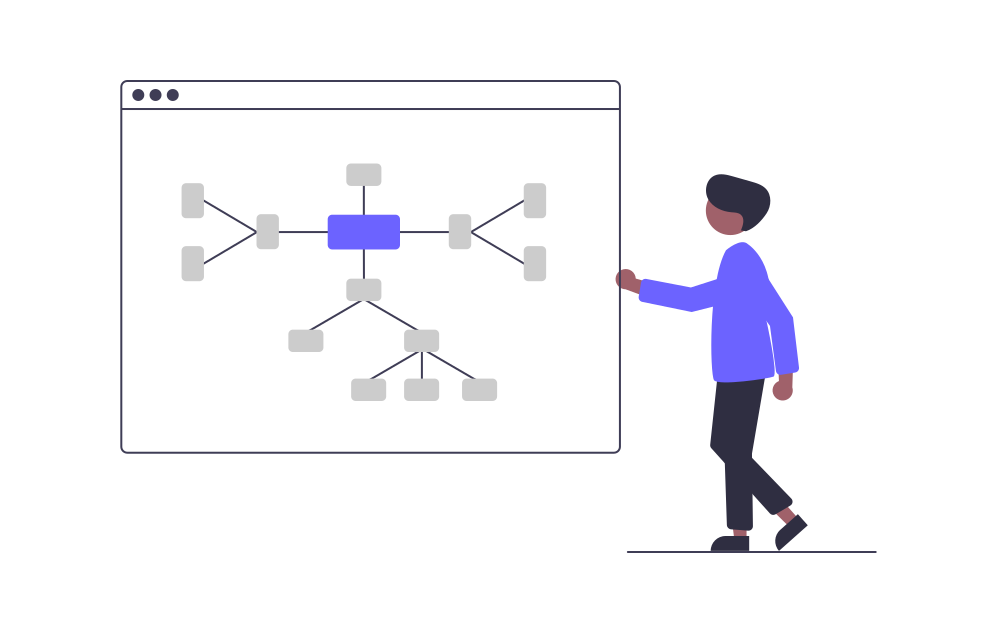Project Management is one of the big areas in any organization. Whenever you are responsible for managing a project you have to know every ins and outs of it. Like before Project Management is not an easy task to do. A project manager has to go through a lot of phases and keep him/ her aligned with every task that is incorporated into the project. That is why modern-day project managers need specific skills that will help them to ace their position.
What are Project Management Skills?
Project management is the ability to plan, organize, and coordinate actions, resources, and stakeholders in order to achieve specific goals within a given schedule and budget. It includes capabilities like scope definition, scheduling, risk management, communication, and team leadership. Successfully launching a new product, for example, by coordinating cross-functional teams, developing a precise project timeline, and dealing with unexpected problems demonstrates good project management skills.
20 Project Management Skills that a Project Manager should have
1. Leadership
Effective project managers inspire and guide their teams, providing clear direction and inspiring team members to achieve project goals. For example, a project manager leading a team of software engineers ensures everyone understands their tasks, maintains excitement, and handles problems, resulting in increased collaboration and higher production.
2. Communication
Strong communication skills enable project managers to clearly communicate ideas, expectations, and progress updates to stakeholders and team members. For example, by holding status meetings on a regular basis and utilizing various communication platforms, the project manager keeps the marketing team aligned with the project’s goals, resulting in timely adjustments and enhanced campaign outcomes.

3. Time Management
Project managers adept at time management prioritize tasks, set realistic schedules, and ensure that projects stay on track and within deadlines. Example: By utilizing a Gantt chart to map out tasks and milestones, the project manager ensures the construction project finishes on time, preventing delays and cost overruns.
4. Risk Management
Identifying potential risks, analyzing their impact, and developing mitigation strategies are crucial to managing uncertainties that could impact project success. For example, the project manager anticipates supply chain disruptions by maintaining alternative vendors, ensuring a steady production flow even in challenging circumstances.
5. Problem Solving
Effective problem-solving abilities enable project managers to address unanticipated challenges promptly and find new ways to keep the project going forward. When a major software flaw is discovered late in development, the project manager coordinates a quick response, working with the development team to remedy the problem and avoid project delays.
Read More: What is Virtual Workspace? A Complete Guide with best tools of 2023
6. Team Building
Building strong, collaborative teams by selecting the right individuals, fostering a positive work environment, and promoting effective communication and trust. Example: The project manager facilitates team-building activities and encourages open dialogue, resulting in improved morale, better knowledge sharing, and increased team cohesion.
7. Budget Management
Competence in budget management involves allocating resources efficiently, monitoring expenditures, and making adjustments to stay within financial limits. Example: The project manager carefully tracks expenses for a marketing campaign, reallocating funds from underperforming areas to maximize return on investment and campaign effectiveness.

8. Stakeholder Management
Skilled stakeholder management involves identifying and engaging with relevant parties, addressing their needs and concerns, and keeping them informed throughout the project lifecycle. For example, the project manager maintains a consistent line of communication with key stakeholders, addressing their feedback and ensuring their expectations are met during a product launch.
9. Negotiation
Project managers often need to negotiate with team members, vendors, and stakeholders to reach agreements that benefit the project’s goals and objectives. Example: Negotiating with a vendor for favorable contract terms and pricing, the project manager secures cost savings that contribute to the project’s overall profitability.
10. Adaptability
Adaptability allows project managers to respond effectively to changes in scope, resources, or priorities, ensuring projects remain aligned with evolving business needs. For example, faced with unexpected regulatory changes, the project manager revises project plans and coordinates with legal and compliance teams to ensure adherence, maintaining project progress and compliance.
11. Quality Management
Quality management involves defining quality standards, monitoring project deliverables, and ensuring that the final outcome meets or exceeds expectations. For example, the project manager implements a comprehensive quality control process for a manufacturing project, resulting in fewer defects and higher customer satisfaction.
12. Conflict Resolution
Project managers skilled in conflict resolution can identify and address conflicts within teams or with stakeholders, fostering a harmonious working environment. Example: The project manager mediates a disagreement between team members, facilitating open communication and finding a compromise that maintains project progress and team morale.

13. Decision Making
Effective decision-making skills help project managers analyze options, weigh pros and cons, and make informed choices that align with project objectives. For example, when faced with a critical design decision, the project manager collaborates with experts and stakeholders, ultimately choosing the design that balances functionality and cost-effectiveness.
14. Procurement and Contract Management
Proficiency in procurement involves sourcing and managing external resources, vendors, and contracts to ensure timely and cost-effective project execution. For example, the project manager negotiates a contract with a construction company, outlining deliverables, milestones, and payment terms for a large infrastructure project.
15. Change Management
Project managers with change management abilities can assist teams through transitions, whether due to scope modifications or organizational moves while minimizing interruptions.
When introducing a new software system, for example, the project manager organizes user training and handles concerns to ensure a seamless transition and effective adoption.
16. Strategic Thinking
Understanding the larger corporate context, aligning projects with organizational goals, and making decisions that contribute to long-term success are all examples of strategic thinking. A product development initiative is aligned with the company’s growth plan, resulting in a new product line that captures a previously untapped market sector.
17. Critical Thinking
Project managers with critical thinking abilities can assess complex circumstances, recognize potential issues, and make informed decisions based on data and evidence. When a production delay occurs, the project manager investigates the main reason, discovers process inefficiencies, and executes remedial actions to avoid future delays.
18. Technical Proficiency
Understanding the tools, technologies, and techniques relevant to the project enables project managers to efficiently oversee execution. For example, a project manager’s extensive expertise of software development processes helps them to lead the execution of a software project, guaranteeing optimal resource utilization and adherence to best practices.
19. Emotional Intelligence
Emotional intelligence assists project managers in understanding and managing their own emotions, as well as the emotions of team members, resulting in improved communication and relationships. For example, the project manager acknowledges a team member’s frustration and offers assistance, resulting in increased collaboration and a beneficial impact on the project’s outcome.
20. Influencing and Persuasion
Influencing and persuading abilities enable project managers to get stakeholder buy-in, encourage team members, and advocate for project needs. For instance, the project manager persuades senior management to devote more resources to a high-priority project by presenting a convincing business case and proving prospective ROI.

















